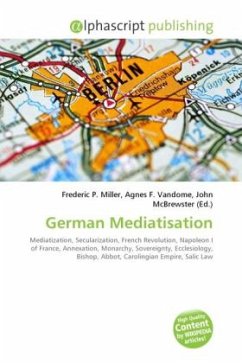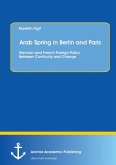The German Mediatisation was the series of mediatisations and secularisations that occurred in Germany in 1795 1814, during the latter part of the era of the French Revolution and then the Napoleonic Era. Mediatisation was the process of annexing the lands of one sovereign monarchy to another, often leaving the annexed some rights. Secularisation was the redistribution to secular states of the secular lands held by an ecclesiastical ruler such as a bishop or an abbot. Following the collapse of the Carolingian Empire, due to the equal heritage splitting prescribed by Salic Law, and the rise of feudalism, much of Europe had been reduced to an array of small, independent statelets. Successive Kings of Germany and Holy Roman Emperors vested temporal authority on many bishoprics, abbacies and convents, and also granted free city rights to many cities and villages throughout Germany. Unlike Western European states like Great Britain, France, or Spain, the German kings were unable to coalesce their realms into a fully centralised kingdom, so over the course of centuries Germany had come to consist of no less than 300 independent states.
Bitte wählen Sie Ihr Anliegen aus.
Rechnungen
Retourenschein anfordern
Bestellstatus
Storno








